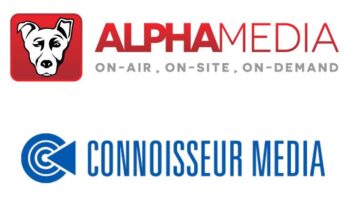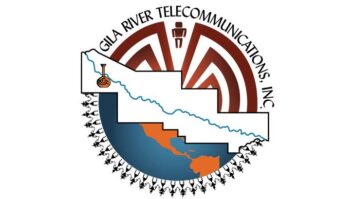The Federal Communications Commission has resolved a dispute involving multiple LPFM applications in Florida, Wisconsin and California, ultimately granting eight applications that were previously dismissed and reinstating one other.
The decision followed a series of petitions filed by Triangle Access Broadcasting, related to common control under a single party, which we originally reported on last year.
Applicants in question
During the 2023 filing window, the nine entities in question filed LPFM applications. They are:
- Heartland Educational Broadcasting in Sebring, Fla., on 96.3 FM
- Visalia Life Education Foundation in Visalia, Calif., on 107.1 FM
- Oxford Lifestyle Educational Radio in Oxford, Wis., on 92.9 FM
- Lake Wales Educational Broadcasting in Lake Wales, Fla., on 106.5 FM
- Lake Placid Educational Broadcasting in Lake Placid, Fla., on 92.3 FM
- Lake Placid Spanish Educational Broadcasting in Lake Placid, Fla., on 106.5 FM
- Sebring Educational Broadcast in Sebring, Fla., on 92.5 FM
- Winwood Lifestyle Educational Radio in Rhinelander, Wis., on 104.7 FM
- Sturgeon Bay Lifestyle Educational Radio in Sturegon Bay, Wis., on 107.7 FM
Our reporting below is according to the FCC’s account of the back-and-forth dispute.
Common registered agent in Florida
Soon after, the Raleigh, N.C.-based Triangle Access Broadcasting — no stranger to filing objections — filed a collection of them, claiming the LPFM applicants were not independent and instead were all controlled by a single party named Heartland Inc.
Triangle contended that the applicants had a “common owner” since each applicant’s articles of incorporation filed in the State of Florida Division of Corporations database listed an entity of Heartland as having power to appoint each applicant’s directors.
Triangle also argued that the applicants shared a common registered agent for incorporation purposes, Michael D. Palsgrove.
The common control and shared agent, Triangle said, violated FCC rules that prohibit one party from holding an attributable interest in more than one LPFM station.
The applicants did not file any pleadings during the eight-month period between the filing of the objections and the FCC’s dismissals in October 2023, where the Media Bureau dismissed the nine of eleven total applications in question, agreeing with Triangle that the Heartland provision indicated common control.
Triangle also filed separate objections against the Sebring, Lake Placid and Lake Placid Spanish Florida applications for unrelated matters.
Applicants argue “backup mechanism” doesn’t actually exist
In November 2023, seven of the dismissed applicants filed petitions for reconsideration. They contended that Heartland could not have been a real party of interest to their applications — because it does not exist.
Palsgrove, they explained, is an LPFM enthusiast who has assisted applicants by helping them create Florida nonprofit corporations to be applicant entities.
According to the petitioners, he created the entity as a backup mechanism to replenish their board of directors should they become depleted in the future.
The applicants also committed to amending their incorporation documents to remove the Heartland provision.
Triangle responded in November 2023 with oppositions to the petitions. It argued that the applicants’ claims were “procedurally impermissible” because they could have been made during the initial eight-month period leading up to the commission’s dismissal letter.
Heartland not a “real party” in interest to the applications
In its decision, the commission said that the seven petitioners initially did not meet its burden for reconsideration.
“They rely on facts and arguments that existed and that could have been made during their last opportunity to present them — i.e., during the eight months between the filing of the objections and the release of the dismissal letter,” the Media Bureau wrote.
To “sit back and hope” that a decision will be in its favor, the FCC said, is “axiomatic.”
But the commission ultimately decided to consider the new arguments in what it said was for the public interest. The commission’s final decision stated that the evidence provided did not prove Heartland was a “real party in interest” with the ability to control the stations.
“In coming to this conclusion, we take into account that Heartland never existed, that an independent initial board of directors controlled each applicant from its incorporation, that the Heartland provision was subsequently deleted, and that the drafter of the Heartland provision denied any present or future participation in the stations’ operations,” the Media Bureau wrote.
So the FCC reinstated and granted the applications for Heartland Educational, Visalia Life Education, Oxford Lifestyle and Lake Wales Educational.
The commission, it should be noted, also took the time to warn future applicants that “in slightly different circumstances,” a similar provision could “easily lead” to a finding of attributable interest.
Additional application grants
The FCC also addressed Triangle’s other specific objections:
- Lake Placid and Lake Placid Spanish: Triangle had objected on the basis of a “close familial relationship” between two directors. The FCC denied this, stating that a family relationship alone is not sufficient to prove common control and that Triangle had not met its “heavy burden” of proof.
- Sebring: Triangle objected to the Sebring application because one of its directors, Luis Camps, was also on a separate application that had been withdrawn. The FCC dismissed this issue as “moot” because the conflicting application no longer existed.
The Media Bureau granted the Lake Placid Spanish and Sebring applications.
It reinstated but did not grant the Lake Placid application because of a discrepancy it listed between the radiation center above ground level of its proposed transmitting antenna — 44 meters — and the structure height of its proposed tower — it listed as nine meters.
Finally, the commission had held the Winwood and Sturegon Bay applications in a state of postponement because they were not the selected applications in their respective mutually exclusive groups. So Triangle’s oppositions to their applications were considered moot.
But in December 2023, those two Wisconsin applicants amended their applications to change their broadcast frequencies to make them no longer in conflict with any other applications. At that point, the FCC determined the objections were “ripe for consideration.”
The Wisconsin applicants filed oppositions to Triangle’s objections, which were similar to the arguments made by the other applicants. Triangle responded similarly with an opposition letter.
The applicants also submitted supplements in January and February 2024, confirming they had removed the Heartland provision and appointed a new registered agent.
The FCC denied Triangle’s objections against the Wisconsin applications for the same reasons as the other applicants, finding no evidence of common control.
The applications for Winwood and Sturgeon Bay were granted.





